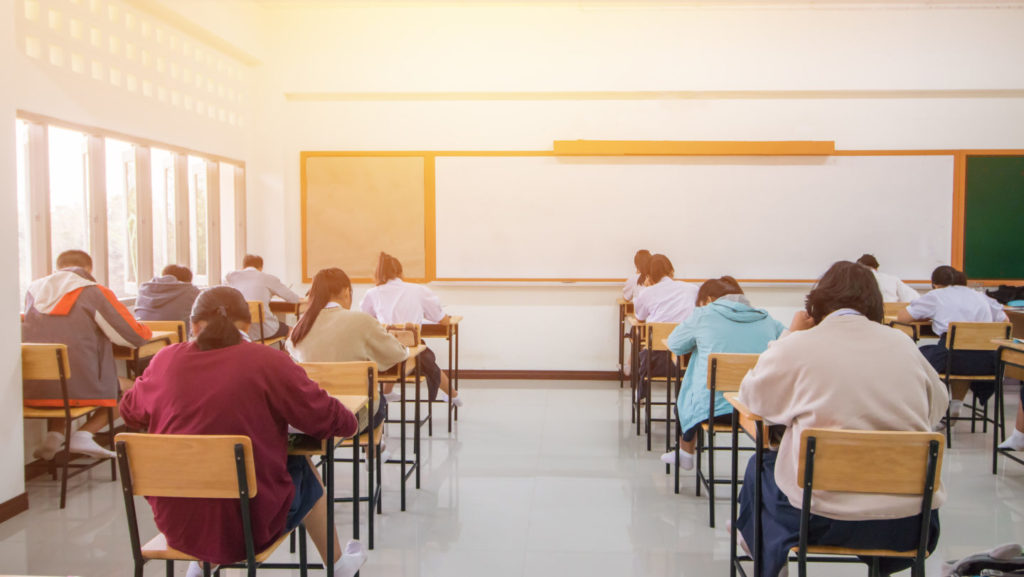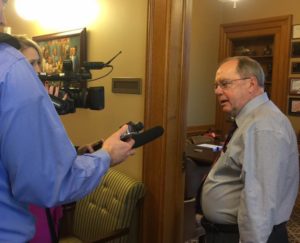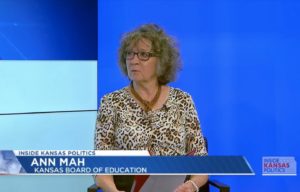Kansas ed officials deceive school districts on efficiency and achievement
(The Sentinel) – Imagine 100 students take a test where Johnnie gets a C and only four students had higher grades. That puts Johnnie in the 95th percentile relative to the other students;…

(The Sentinel) – Imagine 100 students take a test where Johnnie gets a C and only four students had higher grades. That puts Johnnie in the 95th percentile relative to the other students; the 95th percentile sounds very good, but Johnnie didn’t get a good grade.
That’s the kind of deception being perpetrated by the State Board of Education and the Department of Education (KSDE). A false sense of high achievement is one of the greatest barriers to resolving the education crisis in Kansas, but state officials seem determined to perpetuate the myth of high academic outcomes.
The latest example (many others are highlighted here) is in a budget presentation given to school districts. KSDE falsely claims Kansas schools are 95.6% efficient and among the highest in the nation. KSDE officials and at least some board members know that to not be true – we’ve told them before – yet the propaganda continues. The WestEd study said, “…buildings were producing nearly 96 percent of their potential output, on average,” and in my interview with the lead author, Dr. Loria Taylor, she says the outputs were test scores and graduation rates.
Question: “Is it fair to say that such measurement [WestEd’s description of efficiency] is merely relative to the performance of other observations and doesn’t necessarily mean that any of the observations are truly operating at a potential (or theoretical) level of efficiency?”
Dr. Taylor: “Yes, I think that is fair to say.”
In other words, WestEd’s statement about Kansas schools being 96% proficient only describes how they perform relative to each other. It says nothing about their actual achievement levels.
Further, the study’s statement on being ‘proficient on potential output’ is based on the authors’ belief that achievement is limited by the amount of money spent. That presumption, which is shared by many education officials, has never been proven to be true and is routinely proven to be invalid.
One such example comes from results of the 2022 National Assessment of Educational Progress (NAEP). Florida, Arizona, and Idaho have the same or better reading proficiency levels as does Kansas, but they spend 34% to 43% less per student.
The KSDE tagline on the budget slide saying “Kansas leads the world in the success of each student is also a farce.
The 2022 NAEP results show Kansas’ best ranking among the 50 states is #20, and most rankings are in the 30s and 40s.
State assessment results show there are more Kansas students below grade level in reading and math than are proficient. State and local education officials know this all to be true, yet they persist in perpetuating a myth of high academic achievement.
KSDE statement on ‘efficient’ doesn’t mean schools can’t save money
The Kansas Association of School Boards and other lobbyists have also tried to use the efficiency statement to claim that school districts cannot provide the same or better services at lower costs. Again, they know that to not be true from Dr. Taylor’s own statement.
“We have no information about the extent to which Kansas districts are able to negotiate the lowest possible prices for the inputs they purchase.”
The motivation for deceptive practices like those described here is hard to understand for people who haven’t been ‘in the trenches,’ but it is readily apparent to those of us who have been working to improve student achievement
The state school board, KSDE, and many local education officials want students to do better, but not if it means the system has to act differently. That’s why education governance expert AJ Crabill says, “Student outcomes can’t change until adult behaviors change.”
The Kansas Constitution vests general supervision of Kansas schools in the elected state board of education, which consistently turns a blind eye to declining achievement. It takes no action when state audits and other investigations prove that school districts ignore state law. In fact, the state board president reacted to the audit finding schools not spending at-risk money “as required in state law” by publishing a column that basically said, ‘shut up, go away, we know what we’re doing.’
They do know what they are doing – allowing illegal actions by some districts and ignoring low achievement. And that won’t change until enough Kansans force the issue.



